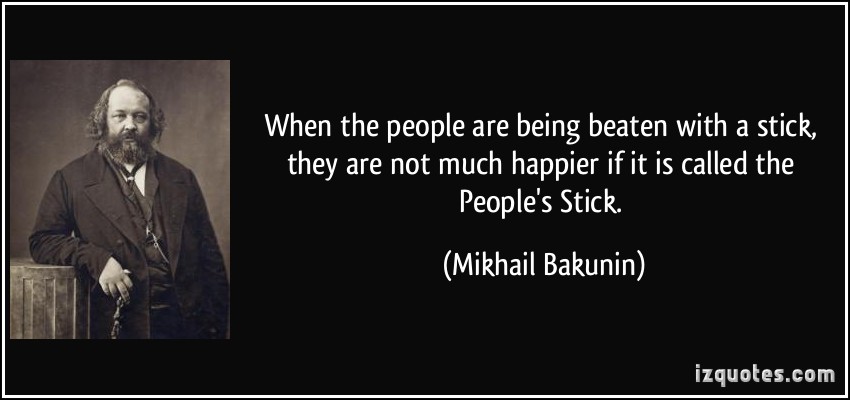Anarchist precepts do not, as is generally thought by radicals, exclusively belong either to the realm of the great ideas of socialism or to the (often cynical) talk of individualist pacifism. In reality, citizens in a Republic may apply anarchist principles every day and typically do so without realizing it. In fact, I will do on to note how even Christians can be anarchic in their general worldview (despite a stereotype of all anarchists being atheists, that has never been true, and I say this as someone who considers himself an atheist).
Regardless of how one labels themselves politically, people can see two main roads of civilization as contradictory; the roads that divide the wealth and poverty of nations.
So long as the ruling classes permit the former, they are abetting the latter, and that shall remain so.
There is, however, another road, and while its way is not straight, its direction does seem to be toward freedom and human rights.
This road is the road of an Anarchic direction.
It’s corny to say “Anarchism stands as the sword of truth and justice,” but one’s ability to question authority holds that no human being can be absolutely enslaved as an individual, but everyone can be enslaved as a blindly obedient member of a group; it says that the proverbial soul of man can be liberated but the body cannot be without a new and higher relation to man; it says that the freedom of the human spirit is essential to the social improvement of mankind, but that the enslavement of man by man is a morbid and degenerate form of enslavement, to the extent that it will always appear without purpose, even if it is promoted as giving humanity special purpose.
As part of the anarchist critique of capitalism, critics point to the problems of central economic planning and statist planning and argue that private property and profit-seeking, especially under the influence of private capital, can’t solve our most daunting problems, as they lead to undue individualization, injustice, and poverty.

At most, we know there should be some intelligent economic planning, but there is great folly in leaving all of these decisions up to greedy capitalists, while we have less and less say in our working lives. It is also immensely flawed to relegate all of our major decisions to politicians, who are just as easily corrupted as the capitalists, but, even when they are not so greedy, may seek to impose their own culturally biased views upon the population through force of government.
So, rather than that, why not have society organized freely, in organizations where profit is not the primary or only concern, and where any representatives merely have a delegate (spokesperson) function and have no special powers, privileges, and rights akin to a dictator?
Well, we know why such organizations are relatively rare; They do not allow for the ascendancy and maintenance of some ruling class. They would seek to limit power, rather than have leadership attain more dictatorial power for itself.
In that regard, power has a lot of propaganda on its side, often called “the media.”
While mainstream media is not always, 100% servile to the interests of the rich and powerful, there is an undeniable tendency in that direction throughout human history. And, as power has been consolidated into fewer and fewer hands, life is squeezed out of intellectual engagement society-wide. It’s not just that society seems to be getting “stupider,” but that it’s designed to move in that direction. Such is the nature of any ideology wherein you are not supposed to question power. You will inevitably aggregate stupid and horrible results. It’s very much as Voltaire once said: “Those who can make you believe absurdities can make you commit atrocities.”
History and popular culture still provide many avenues of intellectual exploration, but one is easily seduced by pseudo-Moral philosophers who act as the avatars of a worldly form of pure, beautiful love; however, in the process of seeking truth and wisdom, people may fall under the spell of the more earthly form of the love of money.
It is ironic, too, because the United States (the biggest purveyor of greed, violence, stupidity, and corruption) is often said to be a “Christian country,” and Christianity is said to feature both a spiritual and physical prohibition against “worshiping money.”
However, since the origin of the so-called Christian civilization (and certainly before it), human beings were always careful to pick and choose the parts of their stated religion that made them look, sound, and feel best.
After the purported death of Jesus Christ, his followers are said to have sought to replace his earthly sacrifice with their own, to embody Christ’s stated beliefs and values, which included serving the poor. Even putting aside passages that slam the rich, we have more modest statements such as Matthew 6:33, “Seek ye first the kingdom of God, and his righteousness.” Does righteousness include obsessive tax breaks for the rich, constant military expansion, and unlimited corporate power? How about immigrant-bashing and racism?
Obviously not. However, the power of propaganda means we can always look the other way and defy our own conventionally stated beliefs. So that’s why we need to employ the good ol’ anarchic lens now more than ever.
